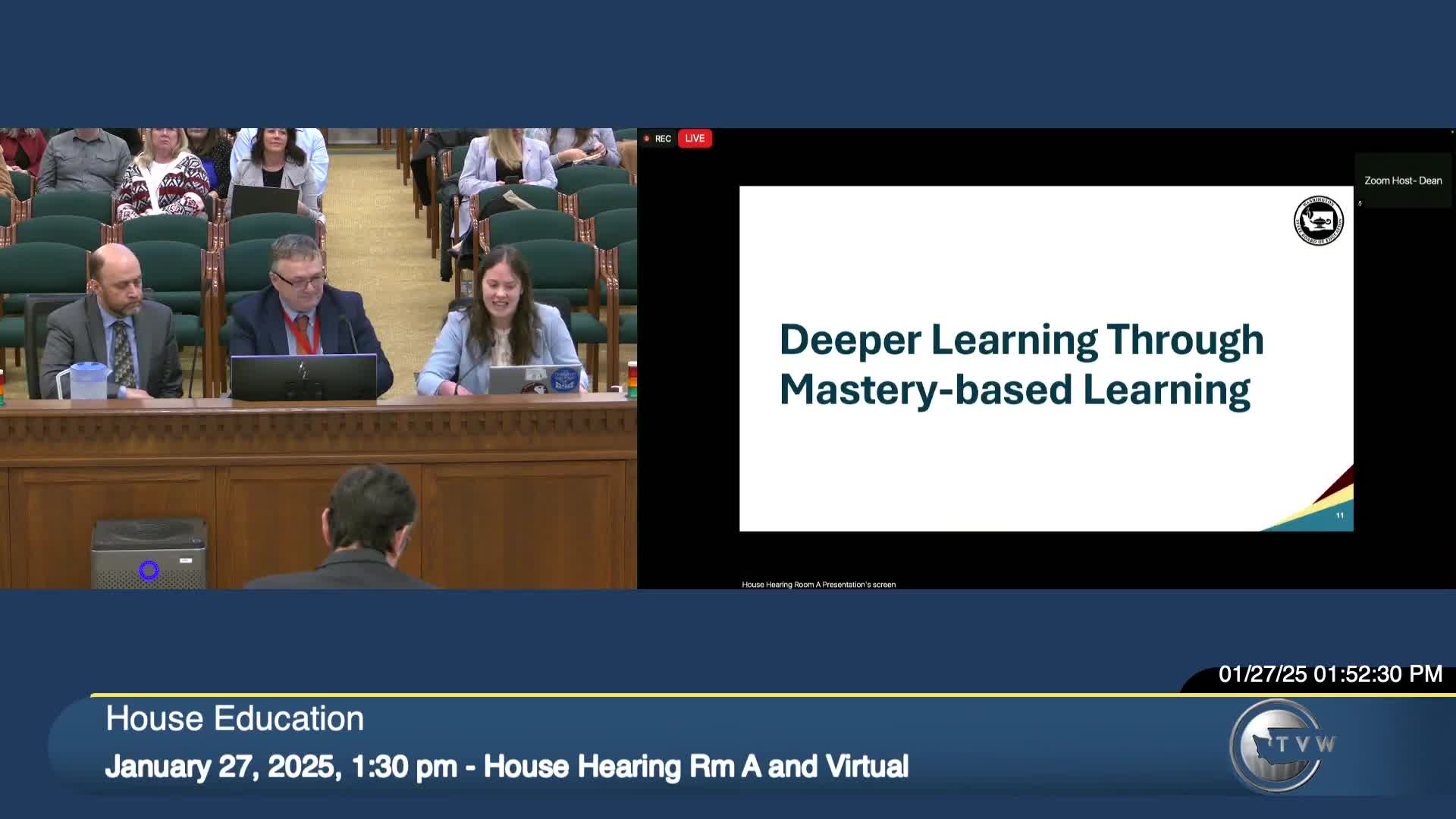State board outlines mastery-based learning project; Highline shares classroom examples

Summary
State Board of Education described a 47-school mastery-based learning collaborative and will issue a legislative report this year; Highline School District presented program examples including Maritime High School and said outcomes aim to match the rigor of traditional diplomas while changing how students demonstrate mastery.
A State Board of Education project to test mastery-based learning is underway with 47 participating schools, board staff told the committee, pairing district-level flexibility with an evaluation to inform future policy.
"Mastery based learning allows students to move at their own pace as they master knowledge and skills tied directly to state learning standards," said Alyssa Muller, director of policy for the State Board of Education. The board is leading a demonstration project to help buildings implement mastery-based practices and to surface policy barriers to scaling those approaches.
The nut graf: the demonstration aims to document whether building-level mastery-based methods (project-based, interdisciplinary, authentic assessments) can produce outcomes equivalent to the state'defined diploma while addressing reporting and funding barriers that currently tether credits to seat time.
Bernard Kuntz, executive director of student learning at Highline School District, described four Highline schools in the demonstration. He said the district's Maritime High School uses project-based learning and extended field work "out on the water" alongside in-class instruction; upperclassmen pursue dual credit and industry certificates. "We are absolutely committed to make sure that the depth and the rigor and the outcomes of what students are experiencing . . . is consistent with what they would be getting in a program that had them seated for 1,080 hours and earning 24 credits," he said.
State board staff said their evaluation has found practical barriers: reporting and funding requirements that require translating mastery demonstrations back into traditional credit units, and other implementation needs including professional development and peer networks. The board plans to submit a legislative report this year summarizing findings and recommendations.
Ending: the State Board asked the committee to monitor the demonstration'project findings; district representatives offered to host school visits to illustrate how mastery models operate in practice.

